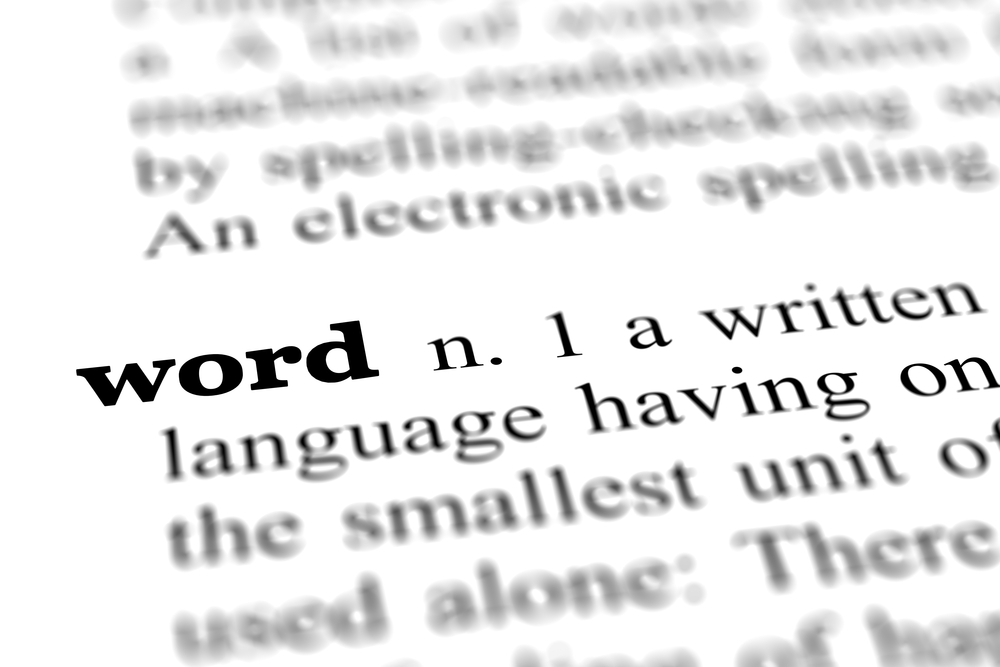
I’m certainly the kind of person who will nitpick over whether a word is being used correctly. On the other hand, I also realize there is no objectively correct definition of any given word. The meaning of words and the rules of grammar change over time. Language was not designed, it evolved, and continues to evolve.
One simple example of this process is the evolution of the word “planet.” Is Pluto a planet, or not? That depends on how the word “planet” is defined, and that definition has changed over time. This video summarizes how the meaning of that word has changed, and how what we designate Pluto has changed as a result. It’s not as though in 2006, we realized that it had been objectively wrong to call Pluto a planet this whole time, and that thankfully we have now finally figured out What “Planet” Has Really Meant All Along. Over time, we’ve learned more about the objects our solar system contains. As our knowledge of them increased, new terms were made to categorize objects with similar traits, and sometimes in this process an object that was in one category gets reclassified into another.

I bring this up because there’s an argument these days about how the word “racism” has been redefined. Traditionally, “racism” meant an irrational dislike of someone due to their racial background, usually paired with some desire to oppress or disadvantage that person. Now, “racism” is taken to describe a far wider scope of phenomena. Famously, or infamously, Ibram Kendi defines “racism” to be anything that doesn’t produce identical outcomes across all groups. For Kendi, racism is an outcome, not a process, which is why in his book How to be an Antiracist Kendi openly states “racial discrimination is not inherently racist.” It’s the outcome that determines (not merely indicates or suggests, determines) racism. If you discriminate against people on the basis of race and end up producing the same outcomes for everyone, then to Kendi you are an antiracist. And if you treat everyone equally regardless of race but outcomes aren’t identical, then to Kendi you are a racist.
Still, it’s not enough to object that Kendi and his fellow thinkers have “redefined” racism. The meaning of words and the scope of concepts are things that change over time, so why can’t racism be redefined just as planet was? Simply appealing to the “original meaning” of the word doesn’t go very far. Nowhere is it written that the “original meaning” of a word is forever the Objectively Correct Meaning – if it was, we’d have to start referring to the moon as a planet again.
Still, some redefinitions are better than others. There are two problems I see with Kendi’s redefinition of racism that make it a bad redefinition, in contrast to how redefining the meaning of planet was a good redefinition.
The first problem is that Kendi’s definition makes racism useless as an explanation for anything that happens. Using the traditional definition, the statement “racism created this difference in outcomes” makes is a clear statement establishing a causal connection. Using Kendi’s definition, this claim becomes meaningless. Since racism is simply anything that produces different outcomes, the statement just becomes “a process that creates different outcomes created different outcomes.”
The second is an issue of clarity. A good redefinition makes the meaning of a word more precise – that is, it narrows the relative scope of what you’re describing. A bad redefinition expands the scope of what you’re describing and makes the term more vague and nebulous. The wider a range of phenomena a word can describe, the less information that word communicates.
This point was brought to mind when reading an article describing the current troubles experienced by Kendi and Boston University. The author, who describes himself as “someone rather to the left of Kendi”, has exactly this concern with how the scope of the term “racism” has been expanded to describe a wider and wider range of things. According to the author, Tyler Harper, “the real damage that Kendi’s philosophy has wrought on American culture is in the way he turned words like ‘racism’ and ‘white supremacy’ into banal, everyday terms like any others.” Harper goes on to say:
Obviously there is a huge difference between the racism that motivated the Charleston church shooting and asking people to show up on time to a meeting. If your proposed definition suggests these wildly different events should be described with the same word, then you have offered up a really bad definition and it should be firmly rejected.
Calling everything bad or upsetting in the world “racism” does not transfer the moral urgency to oppose racism (as traditionally defined) to these other things. On the contrary, to use a metaphor from economics, all you’re doing is devaluing the currency through inflation. These new attempts at a definition of racism may not be “objectively wrong,” but they are still debasing.

READER COMMENTS
Peter
Oct 12 2023 at 2:17pm
The other major problem is words have meaning at the time they are written and that’s a big deal in legislation because the courts rarely apply the historical usage as it’s convenient to allow redefinition to allow enforcement of laws that would never pass today if they were voted on (or then if those voting new the future redefinition). The reason word redefinition should be fought is because labels matter and can land people in actual prison. Courts like to ignore hyperbole, do definitional shopping, etc
When we ban apples but culturally redefine apple to mean Jews, well you end up with legal ghettos using an agriculture law and public support of it because they know what apple means and the law is the law
Kevin Corcoran
Oct 12 2023 at 3:12pm
According to Cass Sunstein’s recent book How to Interpret the Constitution, the school of thought that is most concerned with the issue you describe is known as “semantic originalism.” Semantic originalists believe that if the meaning of words or phrases have changed over time, laws should be interpreted according to what those words meant when at the time the law was written, not what they are taken to mean now.
Scott Sumner
Oct 12 2023 at 5:50pm
It isn’t just that minor bad things (like microaggressions) get redefined as “racism”, things that are actually good get labeled racism. For examples, Asian-Americans earn more than white Americans. That’s not a small problem; it’s a situation that’s not a problem at all. So if unequal outcomes really were the definition of racism, it would imply that we should not worry about racism at all.
Monte
Oct 12 2023 at 7:27pm
We have entered an age of arbitrary, abstract, and ambiguous language, particularly with respect to words like racism and equity, or phrases like hate speech and climate change. It’s difficult enough today to engage in reasoned discourse with anyone in any setting, private or public, given the uncertain nature of the definitions upon which we used to rely. All the more reason to be concerned about redefining words and how courts might choose to interpret them in applying the law, as Peter alludes to above (E.g. Justice Ketanji Brown Jackson and her reluctance to define what a woman is).
How many living examples of the character Humpty Dumpty from Lewis Carroll’s, Through the Looking Glass, have many of us recently encountered?
Richard W Fulmer
Oct 13 2023 at 12:15pm
According to Ibram X. Kendi, anything that increases racial disparities is racist, and anything that reduces racial disparities is anti-racist. Simple. But, which of the following are racist and which are anti-racist?
1a. More school discipline: If we punish students for bullying, we are likely to find that we’re punishing more black boys than, say, Japanese American girls. So, discipline is racist.
1b. Less school discipline: If we don’t punish students for bullying, we are likely to see an increase in black victims. So, discipline is anti-racist.
2a. More police presence: More cops on the street will likely mean more arrests of young black men. So, hiring more cops is racist.
2b. Less police presence: Fewer cops on the street will likely mean more black victims. So, hiring more cops is anti-racist.
3a. Race-based college admissions: If we ensure that our university student bodies reflect community racial makeup, more blacks will have the opportunity to obtain higher education. So, basing college admission on race is anti-racist.
3b. Merit-based college admissions: If we make sure that students attending a university are well-matched to that school’s standards, more students – including black students – will graduate. So, basing college admissions on race is racist.
4a. Minimum wage laws. If we raise the minimum wage, some black people will earn more money. So, minimum wages are anti-racist.
4b. Minimum wage laws. If we raise the minimum wage, some people will lose their jobs. And these people will likely be the least employable – that is, the least educated, least skilled, and most discriminated against. Often that translates into minority youth. So minimum wage laws are racist.
5a. Higher teacher quality. Increasing standards for teachers could result in fewer minority teachers. Therefore, high standards are racist.
5b. Lower teacher quality. Maintaining or lowering current standards for teachers will result in poor education for minority students. Therefore, low standards are racist.
Kendi’s definitions of racism and anti-racism don’t seem to provide much policy guidance. The problem is that the definitions depend on what we choose to measure and who we choose to look at. Do we count perpetrators or victims? Teachers or students? Do we count admissions or graduations? Do we count jobs kept or jobs lost? Do we focus on minority demographic A or minority demographic B? Do we count heads or accomplishments?
Richard W Fulmer
Oct 13 2023 at 12:19pm
Christopher Caldwell, writing in National Review, summarizes Kendi’s binary view of race in America:
I suggest a third possibility: Progressive, paternalistic programs have created perverse incentives that resulted in the creation of a multigenerational underclass made up of people of all races.
The three diagnoses suggest three, very different, prescriptions:
Problem is with Blacks: Black Americans should change their culture.
Problem is with Whites: White Americans should change their culture.
Problem is with perverse incentives created by government policies: Change or end the policies.
steve
Oct 13 2023 at 12:29pm
Meh. Racism is one of those words so common now that have almost no meaning. They are just used as a pejorative or as a way to end discussion. Others are socialist, woke, terrorist, CRT and I am sure there others I am forgetting. In a tribal society they are useful in that it lets both tribes talk past each other convinced they are making the winning argument when they aren’t really talking about the same things.
Steve
Walter Boggs
Oct 13 2023 at 5:42pm
It appears Mr. Kendi has managed to take the fun out of racism. We owe him a debt of gratitude.
Knut P. Heen
Oct 18 2023 at 12:11pm
I wish people stopped using adjectives instead of adverbs. Redefining English grammar is even worse than redefining a few words.
Comments are closed.